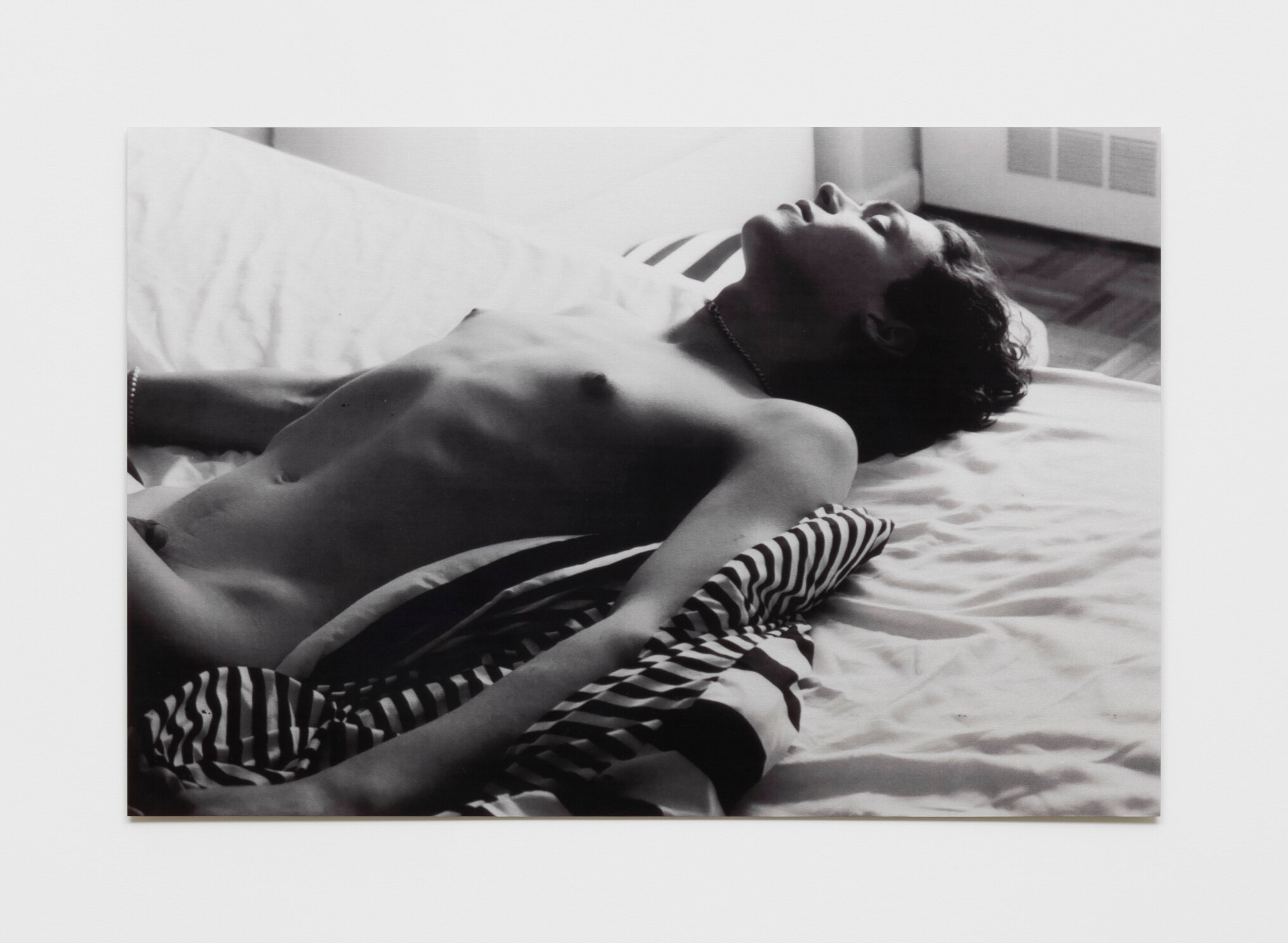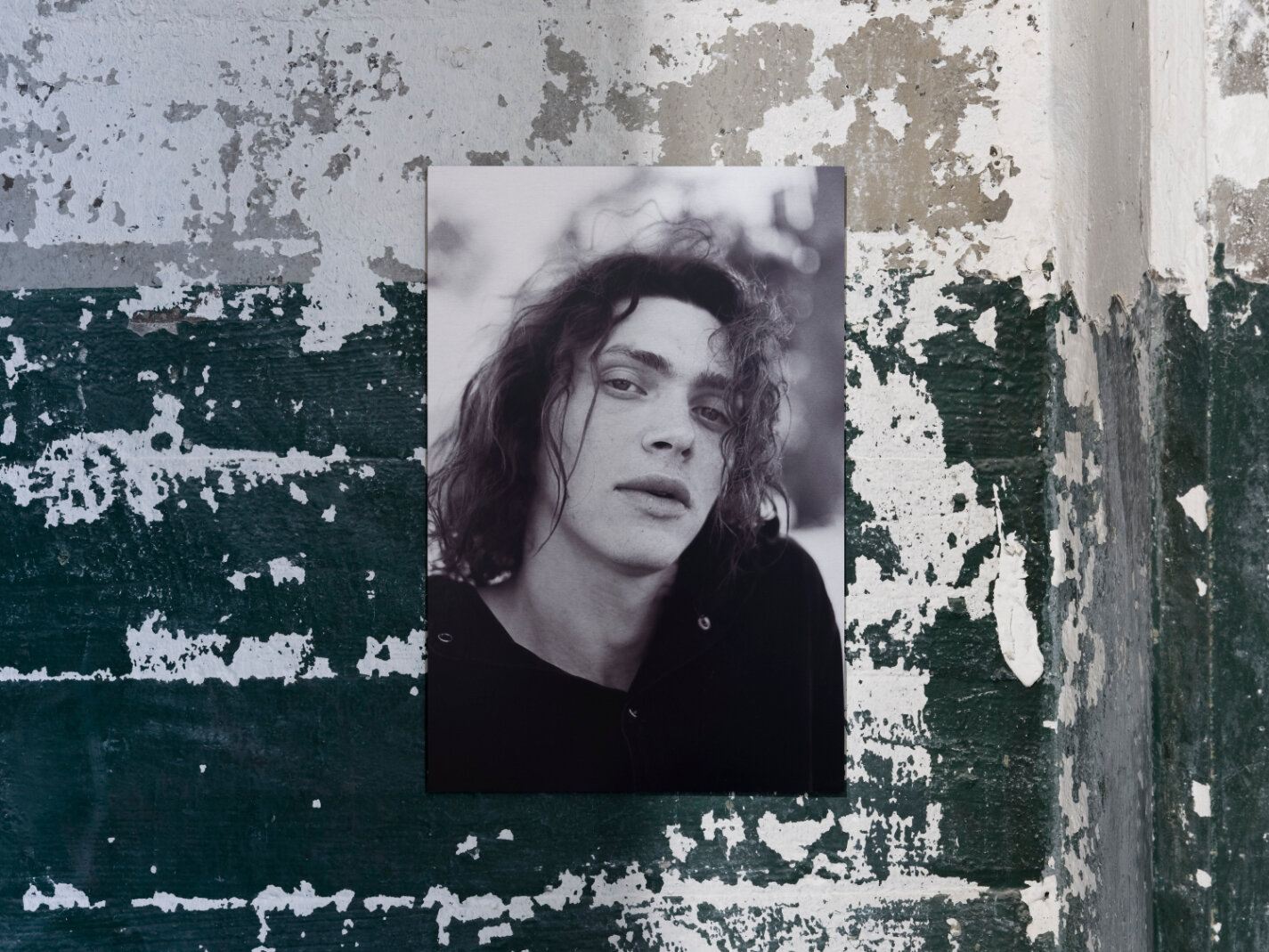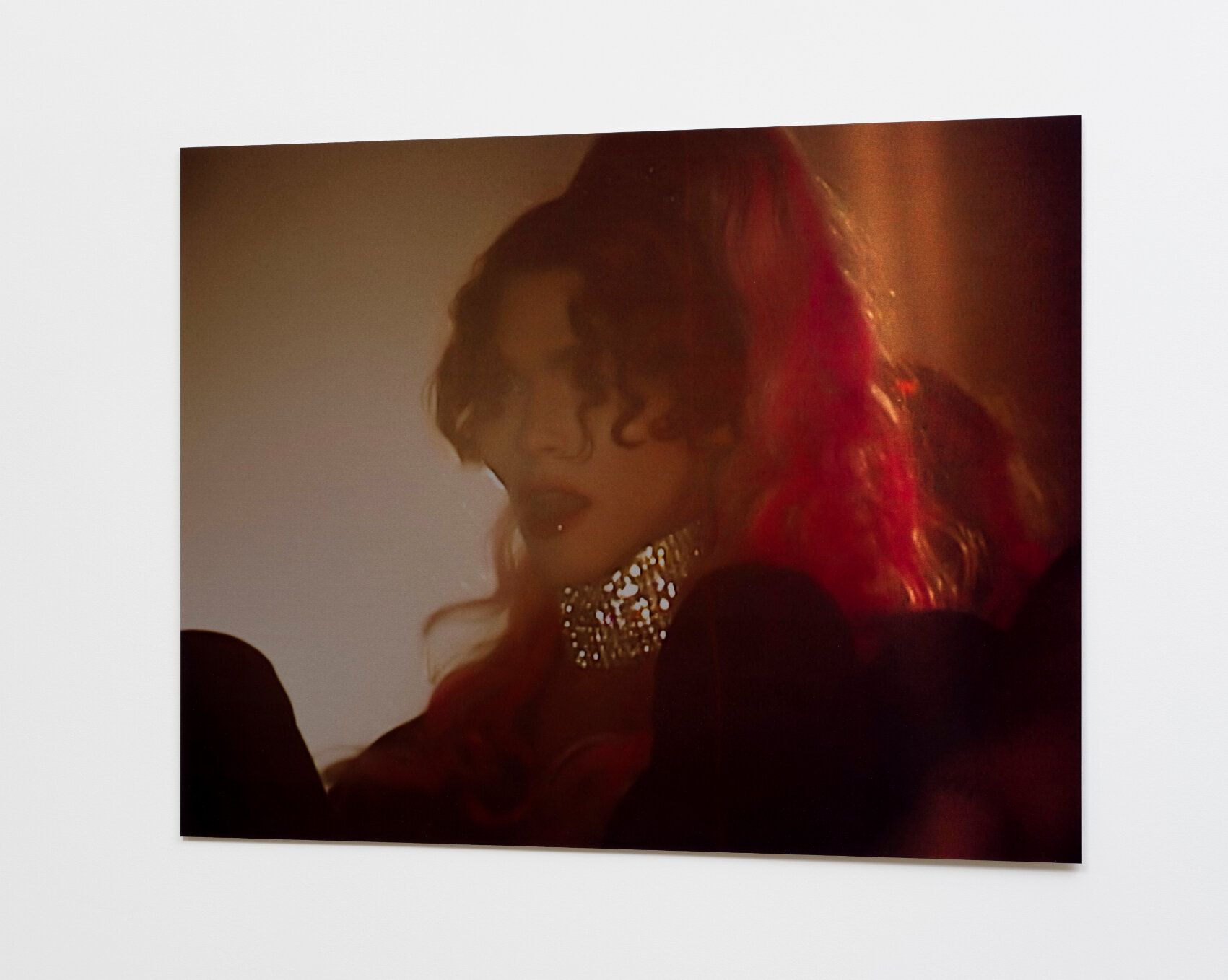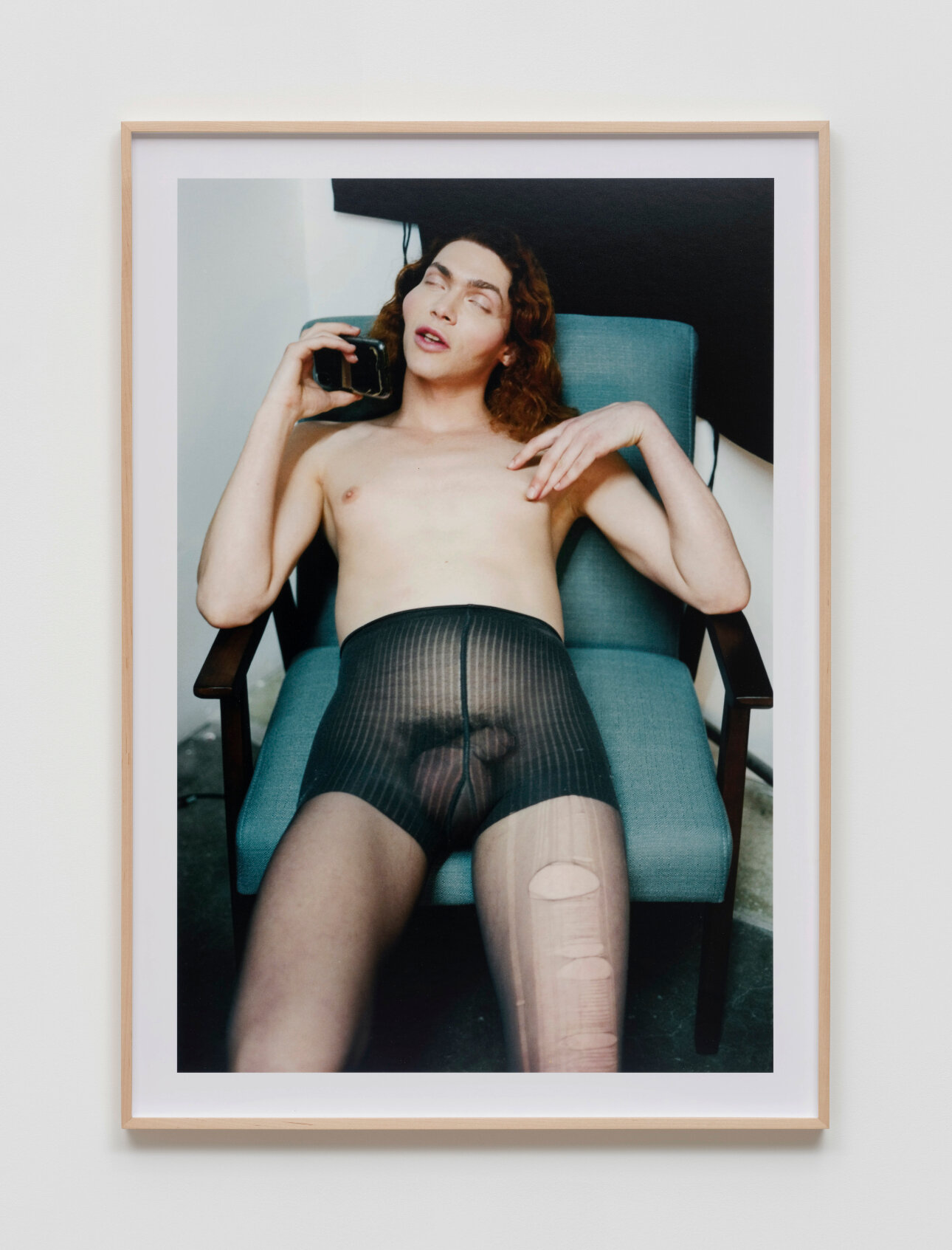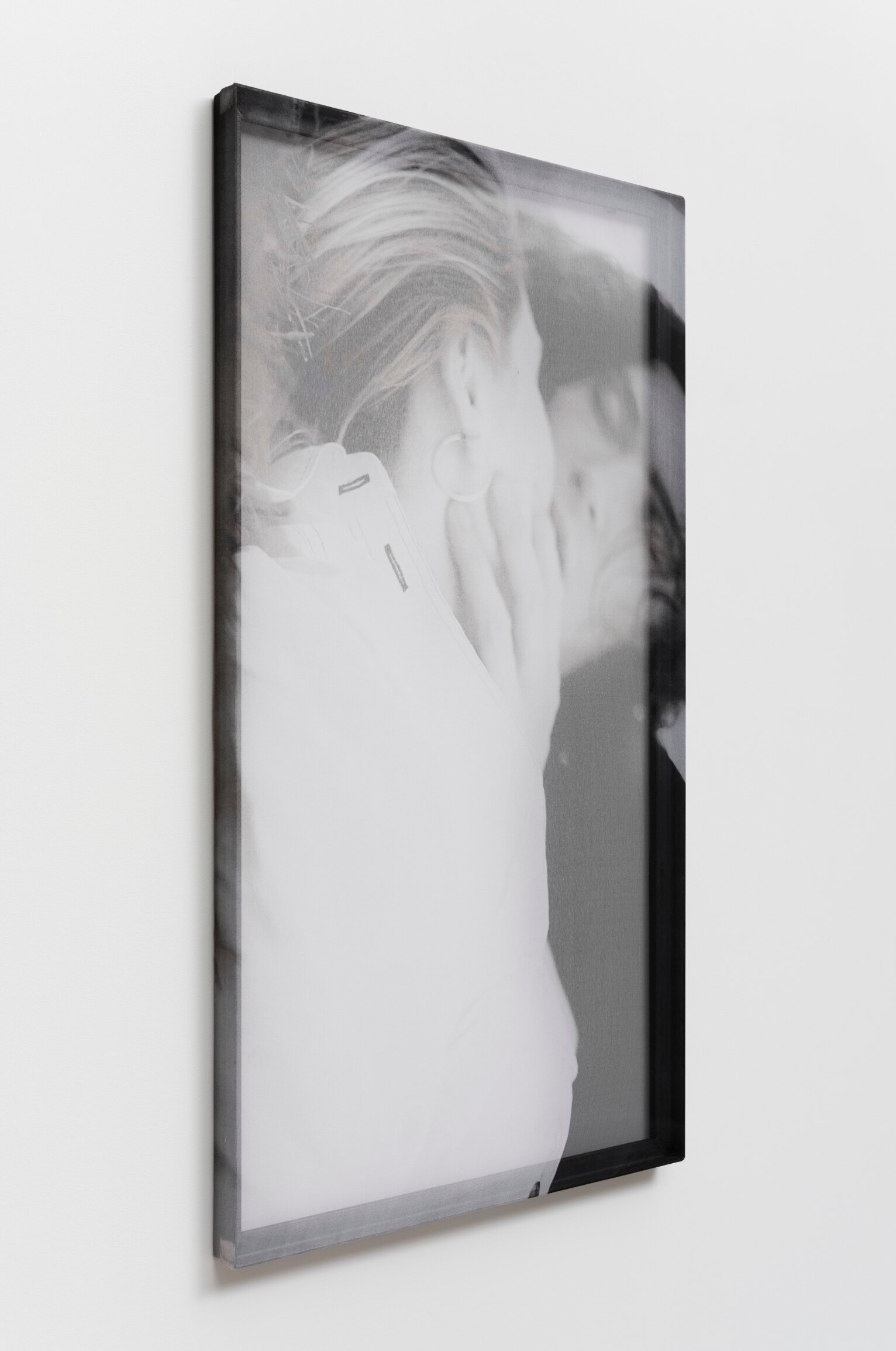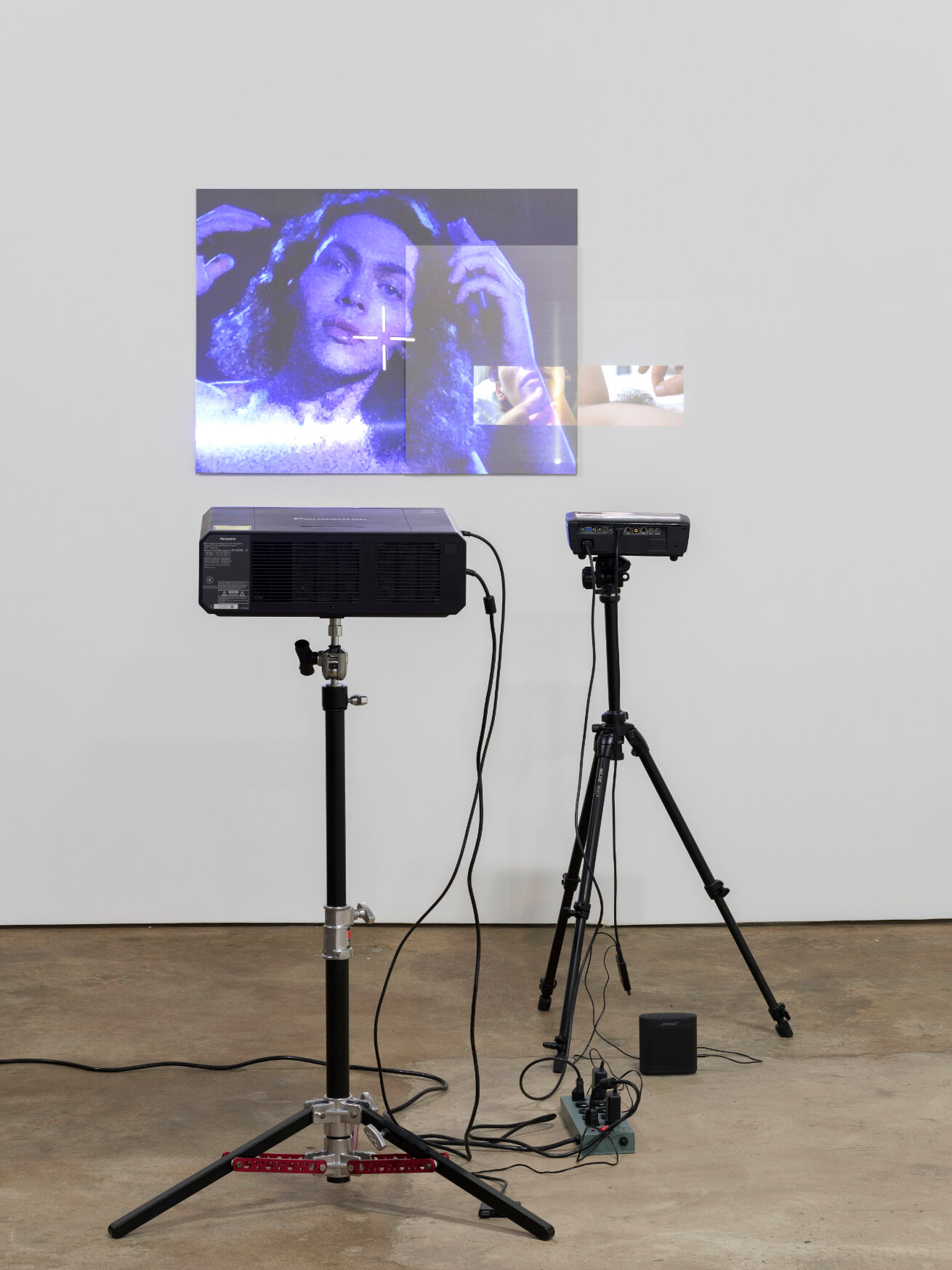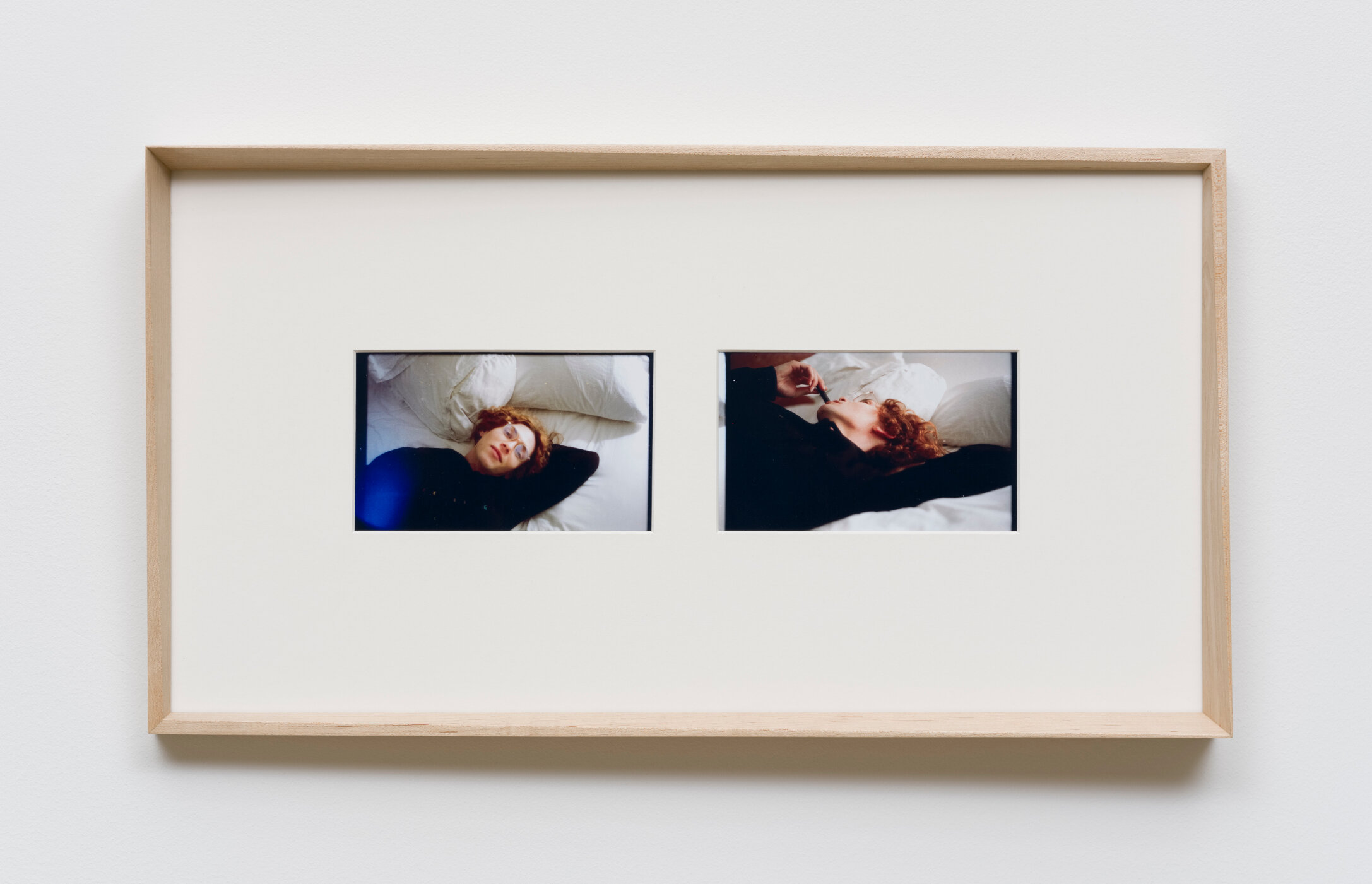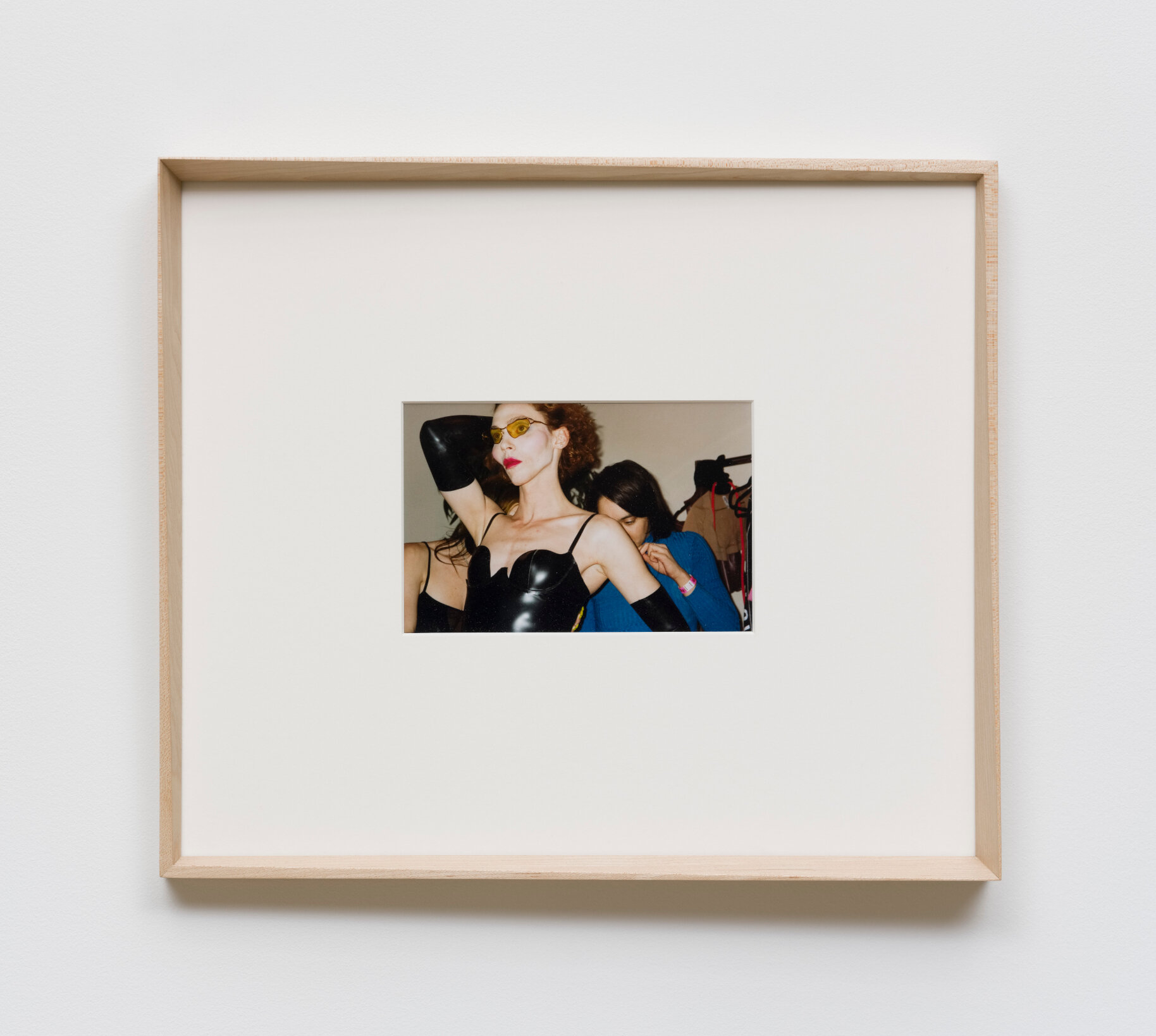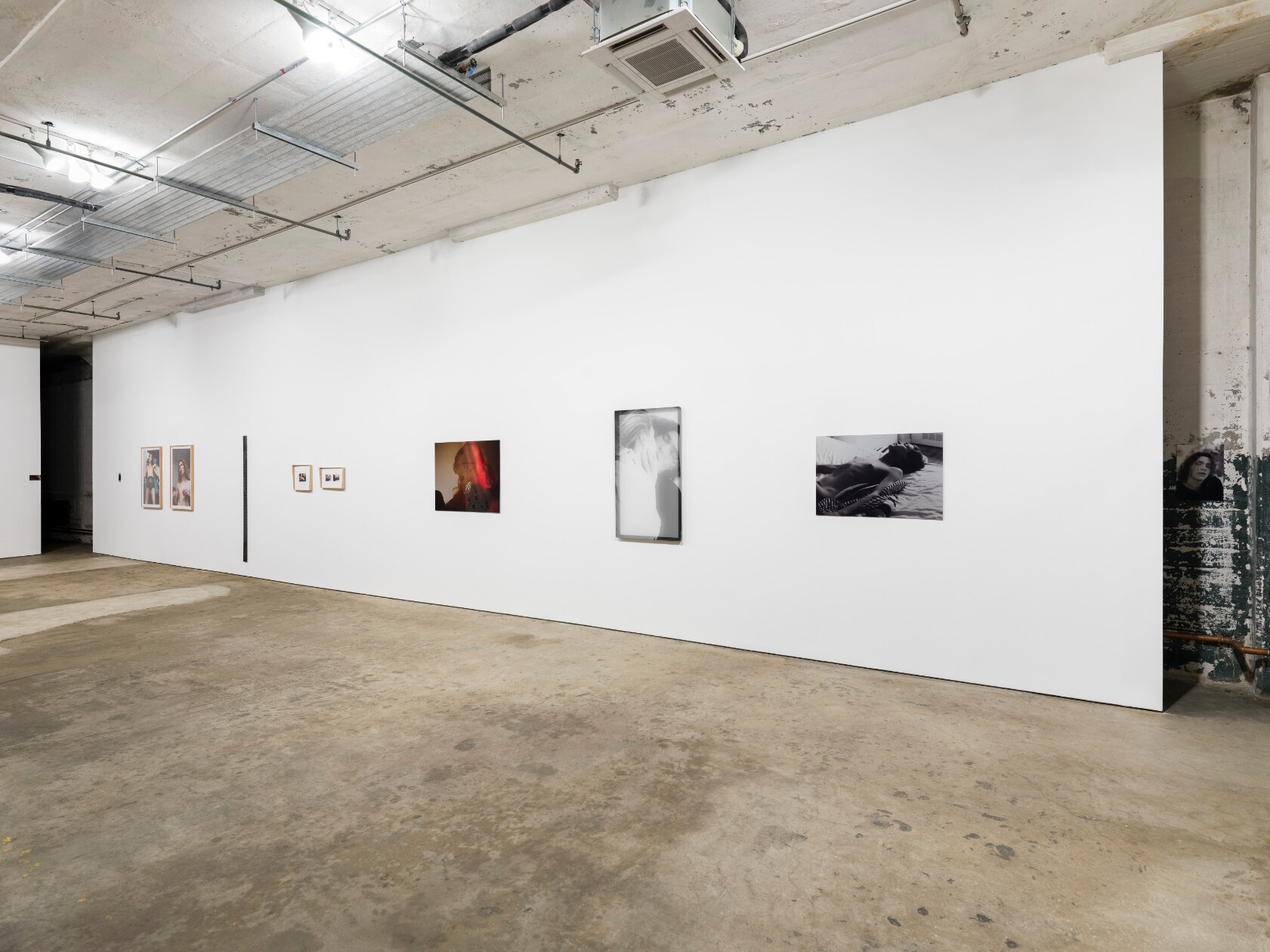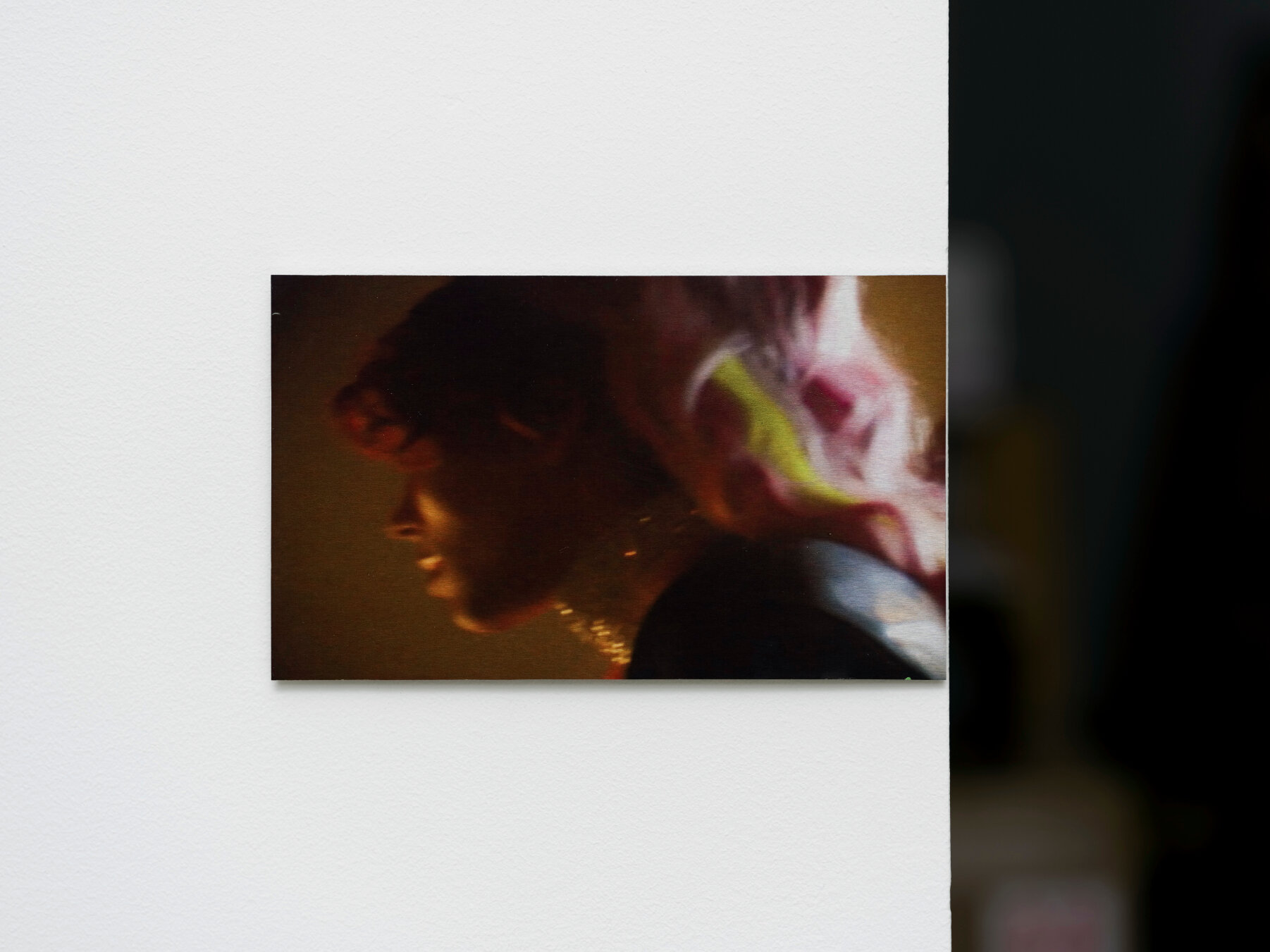Zoe Chait
projection reflected, 2017-2020
Projections on aluminum panels
9:18
text by Summer Bowie
Capturing Sophie, the late, hyperkinetic pop sensation whose tragic and untimely death shocked and saddened millions around the globe, is like photographing the flight of a butterfly. The prodigious and pioneering musician and producer of avant garde electronic music began her career anonymously making cosmic waves with singles like “Bigg” (2013) and “Lemonade” (2014), worked closely with a number of artists from the notorious PC Music label, and in 2017 came out as a trans woman. Developing an intimate connection with Sophie at such an inflection point was the genesis of Zoe Chait’s Noise, a solo exhibition of portraits that capture an individual who has just emerged from the cocoon with a new and fleeting lease on life. Here and gone in a flash, two artists forge a bond under painfully short exposure. A loving elegy, besotted with adoration. Chait bears witness to the weight of the sublime and the value of the present moment.
You have extensive documentation of Sophie working, creating, living life. When did you first meet Sophie and how did this show come about?
I first met Sophie at the Women's March in LA, right after Trump was sworn in, in January 2017. I remember, she was wearing this big, pink puffer jacket and glasses. She was quiet and her eyes had a curious gaze. We didn't speak much, but walked through the crowd together with another friend, silently processing.
We really came to know each other later that year, when we became neighbours. I rented a room in a very special compound where she lived and worked at the time. It was a wild and beautiful home in the hills. We became close and I began to photograph her.
Mike [Egan], the founder of Ramiken, lived in the house as well while opening a gallery in LA. We shared a kitchen for many months and hiked the backroads of the canyon almost every morning. Over the years, we’d meet up when in the same city and reminisce about our times in that house. I would catch him up on my adventures living with different people and show him the photographs and films I was working on. At the beginning of the pandemic he called to ask if I wanted to do a show and we eventually landed on a group of portraits of Sophie.
What was it like collaborating with someone so intimately on a show like this?
With portraiture, no matter how close I am to the person in the photos or film, I’ve found it’s necessary for the subject to maintain distance from the final piece being created, especially during the edit.
No matter how real I want it to be or how honestly I want to portray the truth of a person, it ultimately becomes my experience of that person when I frame it.
Sophie was encouraging and understood the importance of letting go of the outcome. Her loyalty was to art, whatever it may be. I felt that from her in relation to this work. Even with the material so tied to her as a person, where naturally there could be self-consciousness and the instinct to edit, she supported what I wanted to do and appreciated the gravity of it. There was a lot of trust there, and I feel that how I saw her was one of the ways in which she wanted to be seen.
Can you talk about some of your inspirations?
Vulnerability is the most inspiring thing to me. Sometimes I feel we are living in a simulation of honesty and a performance of openness. When I’m able to witness a kind of raw truth in people and how they move through the world I want to follow that and learn from it.
Can you talk about some of the mediums that you played around with for these images; is there any connection there to Sophie herself?
Several of the images in the show are stills from video, for which the process of capturing the material is a different experience than the process of making the object. Sometimes the camera is very present in the interaction, and is a tool to go deeper, inviting the subject to share something that otherwise might remain interior. Other times watching through a frame requires a level of detachment with reality. I’m in an in-between state, physically there, but somewhat unnoticeable. I zoom into and meditate on micro vignettes playing out in a louder scene, searching for the intimacy I’d find in a private setting.
In the editing there is marinating and processing and translating the experience with materials that can come closer to representing the moment than a purely photographic documentation does.
For example, Touch is made with a delicate, tissue-like organza stretched over a heavy iron frame, which sets its surface away from the wall, revealing its transparency. The feeling is of something I can never fully grasp: held by a strong, heavy support but in essence soft, fragile, fleeting, elusive.
I also printed on aluminum with dye sublimation, playing with the way different surfaces reflect or absorb light. All the choices are in connection to recreating the feeling of the given moment.
Do you remember Sophie’s coming out in 2018, because that was sort of a milestone moment?
In 2017, when “It’s Okay to Cry” came out we sat on her bed and cried, reading all the tweets of support, encouragement, virtual tears that had been looking for a release. I realized the impact of what she was making and how much the world needed it.
What did you learn from Sophie over the years?
She definitely taught me to push things to the edge and pursue what I believe in. Also, to constantly question the reality imposed by the structures outside, and instead listen deeply to what comes up inside; even if it’s soft and quiet, honor it, and live from there. Test the limits.
In her passing, these lessons have become part of me and redirected me in some way.
Can you say what you learned about yourself?
In the process of grief I’ve felt overwhelmed by the concept of life itself. I’m reminded of how delicate and fragile it all is. It’s essential to honor the impulse we have to create, to be the way that makes us who we want to be, to live in love and to support in any way we can.
Do you have a memory of Sophie that would describe her well?
I vividly remember a trip I took from my sister’s in Connecticut to visit Sophie at her Airbnb in New York for a few hours in 2018. We hardly spoke but everything was said. A momentary surrender. A new comfort in her body, nude beyond the skin. Breasts illuminated in soft afternoon light diffused by tall buildings. A lime green shirt with cherries on it, discarded on the floor along with a pack of Capri’s. A cigarette inside with Ben. Siblings holding hands. The case of the missing Juul, solved.
Noise is on view through July 24 @ Ramiken 154 Scott Avenue, Brooklyn


